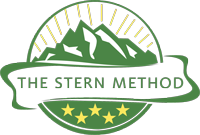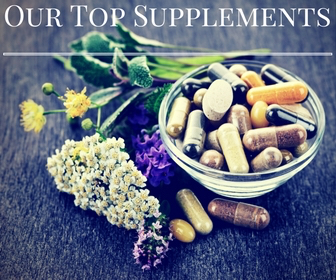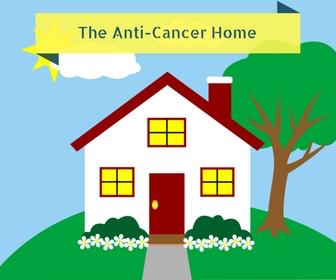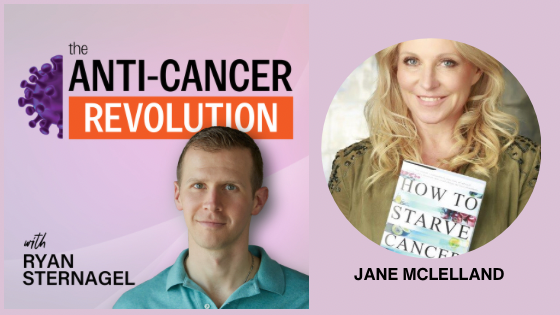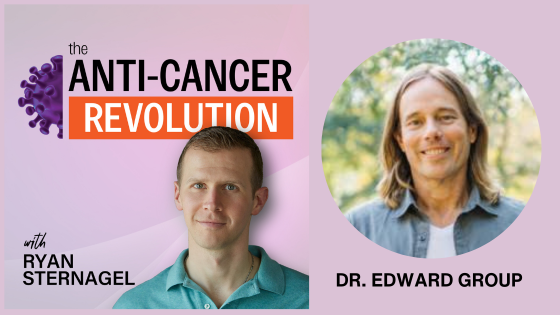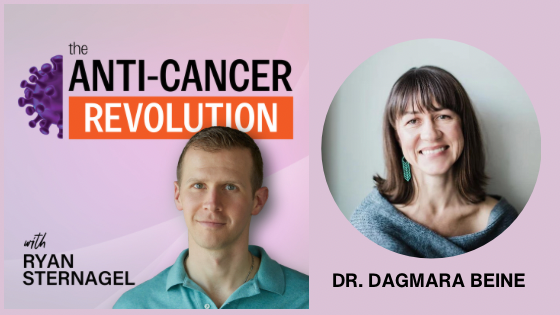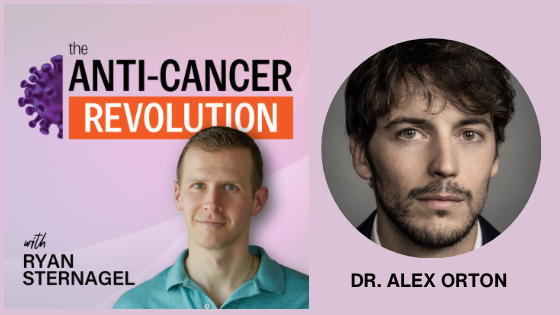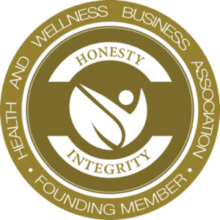[sc name=”GMOs Revealed”]
The Stern Method Podcast 011
Dr. Paul Anderson explains in detail everything you need to know about epigenetics (the study of how genes can be turned on or off, up or down) and cancer. We learn how epigenetics contributes to disease formation and progression, and more importantly an understanding of how to incorporate nutrition and targeted supplementation to turn the tide of cancer in our favor.
In this episode:
- Genetics, epigenetics, genomics, epigenomics, and nutrigenomics defined and explained as they apply to cancer.
- Epigenetics vs. metabolism – what’s the primary driving force behind cancer?
- How to get a report on your individual genetics and what to do with the results.
- Methylation and histone expression explained as they apply to cancer.
- How epigenetics relates to cancer.
- Balance and timing of antioxidant therapies vs pro-oxidant therapies.
- How plant chemicals known as polyphenols can directly influence your epigenetic expression against cancer.
- How to choose specific polyphenol supplements.
- How to plan out a long term supplement rotation.
- How to research the best dose of a specific compound.
Takeaways and Summary of the Dr. Paul Anderson Interview on Epigenetics and Cancer
Dr. Paul Anderson is one of the most well respected naturopathic oncologists (naturopaths that specialize in cancer) in the country today. In fact, while he does manage his own practice and still personally reviews all cases within it, he spends more time on the road teaching naturopathic doctors how to be better doctors.
First, to define a few terms:
Genetics:
Study of specific genes in an organism. Genetics influence normal processes in the body such as replication of cells, reproduction, etc.
Genomics:
Study of entire set of genes within an organism. Genomics essentially gets subdivided out to study how particular things will affect the genome. Pharmacogenomics studies the effect of drugs on the genome, nutrigenomics studies the effect of nutrition on the genome, and so on.
Epigenetics:
Epi refers to outside of, or above the genes. This is the study of what can impact the way your genes act. Specifically, just because you have a certain gene doesn’t guarantee it will be expressed (turned on). Genes can also be under-expressed or over-expressed (turned up too high or down too low). Everything in your environment can affect how your genes act. The word environment in this sense is all encompassing. The food you eat and what you drink, the air you breathe, your physical surroundings, and even the thoughts you think and feelings you feel all play a huge role in the say your genes actually behave. In the most basic sense, good things like organic nutrient dense food food and positive thoughts turn on good genes and bad things like GMO processed food and unhappy thoughts will turn bad genes on.
Epigenomics:
Same idea as epigenetics but instead of studying how certain things affect individual gene expression this looks at how the genome of an organism as a whole can be influenced.
How Epigenetics Relates to Cancer
Again, epigenetics is the study of how our environment, food, and thoughts can change the way our genes are expressed ie. Whether they are turned on or off, up or down. The extension of this is epigenetic inheritance. In other words, not only do we pass on our genes to our children, we can also pass on the current setting of genes themselves.
As you’ll learn below, we don’t inherit diseases themselves from our parents, but we do inherit weaknesses and susceptibility. Environment does the rest.
Dr. Anderson gives a much more eloquent explanation in the interview itself than I am giving here so be sure to listen to the full interview, but he notes that cancer was virtually non-existent in his grandmother’s generation compared to how prevalent it’s becoming now. In addition to living in a much less toxic world, the food they ate was also more nutrient rich than the finest organic food available today, in addition to the fact that none of it was processed whatsoever.
Children who inherit a metabolic weakness, in addition to exposure to carcinogenic toxins in the womb, in addition to starting life in a nutrient deficient state, could very well explain the rise in cancer we see today.
Dr. Anderson also made reference to a documentary on epigenetic inheritance by NOVA (he said Discovery Channel but this is what he was referring to) that looks at this concept in depth.
On the subject of cancer, Dr. Anderson also mentioned the MLL gene in a small percentage of childhood leukemias. In these instances, the MLL gene is actually a “sleeper gene” that is actually not a factor in the initial disease. However when chemotherapy is introduced, it acts as an epigenetic “trigger” which then turns on the MLL gene, turning a very manageable cancer into one much more difficult to treat. Needless to say if I were dealing with leukemia for my child and had not already heard one way or the other about this gene from our oncologist I’d be on the phone before doing anything else until I got clear answers on whether or not this had been tested for.
Cancer Is a Metabolic Disease, but We Must Pay Close Attention to Epigenetics
Dr. Anderson does concur with past guests on the show such as Professor Seyfried and Travis Christofferson that the primary, upstream malfunction in cancer is of the mitochondria and that the negative genetic changes we see in cancer cells are only the result of that damage. He points out that this isn’t even necessarily new information and that the first 20 pages of most any pathology textbook will actually say flat out that cancer and most disease for that matter starts in the metabolism and works it’s way out from there. The problem apparently is that most people will just skip that section as they don’t really know what to do with it.
We touched briefly the failure of the cancer genome atlas project that was supposed to yield all sorts of cures to cancer by mapping the genome of all cancer discussed at length in the Travis Christofferson interview, and then Doctor Anderson expanded on that to the failure of CRISPR. CRISPR is a technology that scientists are using to “edit” genes. The thinking early on was that all they would have to do to beat cancer would be to go in and manually change / insert / delete genes as they saw fit. Not only did this not work because it wasn’t addressing the core problem of the metabolism, it actually caused all sorts of problems because when you change one gene unnaturally it’s going to then create a ripple effect and throw all sorts of other genes that one was connected to out of whack.
With all that being said, Paul notes that we do still need to pay very close attention to, and address the epigenetic component of cancer as well. Once the damage has been done it still needs to be reversed. If you have a bunch of oncogenes turned on and tumor suppressor genes turned off, even if it happened as a result of damage to the mitochondria and not the genes themselves it still makes a whole lot of sense to do everything in your power to turn those genes back in the right direction as quickly as possible (the right way through natural means which we’ll get to below). One could almost think of it as working backwards to get back up to the cause.
To emphasize this point, Dr. Anderson in a previous interview had told us about a lady he had worked with who was only interested in pursuing metabolic therapies and had her breast cancer beat, or so she thought, for eight years. She stuck to the same exact protocol for those eight years and one day the cancer finally back “like a freight train” since she had not addressed the genetic component and still had all of those haywire genes hanging around.
[sc name=”SquareOne”]
A Purely Genetic Cancer Is Very Rare
A common mainstream explanation of cancer is that it’s more or less baked into some of our genes, and at some these people will get it because that’s what’s in their genes and that’s that. Dr. Anderson notes that outside of getting stabbed or shot, very few things in medicine happen as a result of a singularity. That there are almost always multiple driving forces behind just about anything.
In this spirit, Paul said that if a purely genetic cancer did exist at all, it would be in the extreme minority. He describes the majority of cancer as a collusion between metabolic and mitochondrial dysfunction coupled with negative epigenetic effects.
What Damages Mitochondria and How to Fix It Is the Same for General Health
Since we were touching on the mitochondria up front I asked Dr. Anderson if there is any difference then, in what initially damages it in contrast to the usual suspects we always hear about as being bad for our health.
Not really was the answer.
Damaging elements to mitochondria include:
- Toxic exposures such as chemicals and heavy metals
- Radiation
- Nutrient deficiencies
- Redox (antioxidant to pro-oxidant ratio) imbalances
Cleaning these things up through detoxification, super nutrition and so one for your general health will also get your mitochondria back into fighting shape.
Doctor Anderson also mentioned possibly the best thing to do to wake up your mitochondria is also the hardest when mitochondrial function (which creates energy) is low – exercise. As hard as it might be, it’s still vital to do as much as one can as it forces the heart, liver and muscle cell mitochondria to recharge, which sends signals to the rest of mitochondrial cells to do the same.
SNPs Could Thwart Detoxification and Make One Sicker
For a great example of how genetics must still be addressed, Dr. Anderson mentioned single nucleotide polymorphisms (SNPs) and how they can affect processes such as detoxification. An SNP is a slight mismatch in where the base pairs of our DNA come together, which has the potential to affect the bodily process that area was supposed to code for, such as detoxification pathways.
He points out that just one SNP in a particular area is usually not a make or break issue, as the body usually has backup genes and pathways for any given process. But with enough SNPs in a particular area, especially coupled with damage of some other kind, one could have a problem.
This is also where epigenetics start to come into play. If your genes are all lined up correctly, then technically you should be able to “beat them up” epigenetically through things like toxins, emotional trauma, and chronic infections, and for the most part they should continue to code fine for what they’re supposed to code for. But with enough SNPs AND enough epigenetic damage, things can start to break down and lead to disease.
This is why when someone believes a particular disease “runs in the family” they are correct in that increased susceptibility to the disease can be passed down through SNPs, but the damage still needs to occur to bring the disease about. This is the part we have control over.
In the case of weak detoxification pathways, if a person is attempting to detoxify they will actually get sicker as everything starts to pile up unless properly supported by a someone with the proper training for these types of issues (such as a good naturopathic doctor).
We Can Analyze Our Genome
There are two steps to getting meaningful information on our own genome:
- Obtaining the raw data
- Having someone interpret the data
The only easily accessible place to obtain raw data on your genome at present is 23 and Me. This is direct to consumer company that one would pay directly (as opposed to a medical lab that would require doctor prescription, insurance, and so on) for testing services. It’s as simple as spitting in a cup, sending it to them, and receiving your results.
The only problem is the results come back in a form that don’t mean a whole to the average layperson, or the average doctor for that matter. Dr. Anderson reminds us that this is all very new and the amount of available information that came virtually out of nowhere is like nothing we’ve ever seen. So a problem arises when a patient shows up to their general practitioner or oncologist with their 23 and Me report demanding answers on exactly what it means, and as the doctor hasn’t necessarily received training in interpreting these results, for all intents and purposes they are as clueless as the patient… so take it easy on your doctor!
For that matter outside of individuals with highly specialized education and training, computer modeling is really the only way to reliably interpret these results. Dr. Anderson mentioned two companies that provide such a service, Opus23 and Stratagene (which I am having trouble at the moment finding the appropriate link for).
These companies will take 23 and Me results, run them through their computer modeling, and provide a report highlighting issues in a way that doctors (especially good naturopathic ones) can understand and act of appropriately.
The Epigenetic Anticancer Effect of Polyphenols
Polyphenols are naturally occurring chemicals that come from food. You know… fruits and vegetables. Also don’t forget about herbs and spices as these often have very high amounts of polyphenols. Examples of polyphenols with documented epigenetic effects we would be looking for in this context include EGCG (high levels in green tea), sulforaphane (high levelsin cruciferous vegetables), resveratrol (high levels in grapes), curcumin (high levels in turmeric), and boswellia (high in the boswellia tree found in the middle east, what frankincense is made out of).
What is really neat about polyphenols Dr. Anderson notes is that they can act differently towards a cancer cell than a healthy one. They will inhibit the processes one would want inhibited in a cancer cell and promote the type of balance one would be looking for in a healthy cell.
Dr. Anderson points out that while all polyphenols have different specific targets, in general they all create balance in certain areas. Balance in areas like redox (balance between antioxidants and pro-oxidants), markers on cells that are triggered by immune promotors and inhibitors, and cellular communication.
For just one example of the power of polyphenols, Dr. Anderson mentioned a study he ran in which he was working with stage four cancer patients with unresponsive (to conventional treatment and any other alternative therapies they had tried) tumors. When these patients received extremely high doses of curcumin intravenously, almost all of them saw stabilization or regression in their tumors. While he immediately pointed out that was far from saying they were cured and that the levels he was using are very impractical at present due to the cost and long term feasibility, it does serve as a great example of just how meaningful of an effect polyphenols can have on cancer.
How to Establish a Protocol and Rotation with Polyphenol Supplements
Although high doses of certain polyphenols can be effective and attractive in the long run Dr. Anderson notes that patients will be best served with relying on the synergistic effects of multiple polyphenols at lower doses.
A few things to keep in mind Paul points out are that while rotation is a good idea to keep cancer on its toes, it still needs to be within reason. If you are getting results from what you’re doing, stay in that range to keep getting the results. Too often he’s seen patients get results with one thing and then move on to the next and lose the results, and now all of a sudden that original thing isn’t working anymore either.
Conversely, if something isn’t working, patients and doctors need to be open and honest with themselves and be willing to come up with new ideas and try new things, quickly.
Dr. Anderson will usually start patients on at least two complementary polyphenols at lower doses and evaluate from there. He threw out curcumin and boswellia as a good place to start for neurological tumors or curcumin and sulforaphane for solid tumors elsewhere such as in the colon.
In general he will start patients on a certain dose (he threw out two grams of curcumin and one gram of boswellia) and evaluate, increase the dose if not seeing results, and move on to something else if nothing still.
How to Establish Optimal Dosing of Polyphenols
What it says on the bottle about how much to take for general health is one thing, but the therapeutic or pharmacological dose is often quite another. In addition to consulting your naturopathic oncologist, Dr. Anderson also had two great pieces of advice on how to figure out target dosing for polyphenols for these purposes.
1) Naturopathic Oncology by Neil Mckinney, ND. This book was written to be an encyclopedia of sorts for both physicians and patients and compiles all available research on these types of questions. Dr. Anderson notes that new research is coming out all the time so make sure to check that you’re getting the latest edition (third at the time of this article).
2) Your own research. Sometimes the only way to get these answers is to find them yourself. Scientific medical journal directories such as PubMed, DOAJ, Science Direct, Google Scholar, and Wiley Online will yield enormous amounts of information if you’re willing to put in the time looking through them. To narrow down the results to only those that will give specific dosages, combine the polyphenol you’re researching with the terms oral, AND human trial OR case report.
A Well Rounded Plant-Rich Diet Is the Ultimate Anticancer Epigenetic Power
Doctor Anderson makes sure to point out that while supplements can provide targeted support, you’ll never get the amount and diversity of polyphenols you need without a diverse diet of high quality organic plants of all kinds, and as much as possible. Smoothies, juices, and big ol’ salads is how we accomplish this in our house! Different plants all have differing vitamins, minerals, and polyphenols that all do a different job providing balance and evenly feeding our cells what they need to do their jobs and fend off cancer.
This was just a small amount of the information covered in the full interview! For the expanded conversation of all these topics, plus other topics such as methylation and histone expression explained as they apply to cancer, balance and timing of antioxidant therapies vs pro-oxidant therapies, be sure to download the full episode on iTunes or watch it on YouTube.
Listen to the next episode: Beat Cancer God’s Way: Essential Oils and Biblical Health
Listen to the previous episode: Healing Home VS Cancer Clinic
